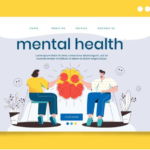The general idea of balance in life is important and easily said but rather difficult to achieve in today’s world. Stress, unhealthy diets, and sedentary living can greatly affect our health and overall well-being. There is literature that under holistic nutrition that gives a clear view of the entire body and soul nourishment. In the proceeding article, we will look at what constitutes holistic nutrition, why it is important for a human being, and how one can apply the concept to his/her lifestyle.
What is Holistic Nutrition?
Whole food nutrition is an ideology system that means that everything we eat can be looked upon not only as an energy source but as a therapeutic instrument as well. It escapes calculating calories and adhering to a noticeable food regimen that is dangerous to the body. Instead, it focuses on:
- Nourishing your body with whole, unprocessed foods: This implies taking foods that are rich in vitamins and minerals such as fruits, vegetables, whole grains, lean protein, and healthy fats. These foods contain valuable and indispensable vitamins, minerals, and phytochemicals required by the body.
- Understanding the mind-body connection: Taking foods also affects our morale, energy, and ability to reason or think. This link is recognized by holistic nutrition, which aims at practicing proper consumption habits.
- Supporting emotional well-being: Some types of foods are capable of having effects on human emotions. It enables you to recognize habits of eating that serve to enhance your emotional condition and diminish stress.
- Considering your unique needs: Every corpse really is unique. This kind of nutrition focuses on developing a dietary plan that is unique to the client, the goals that he or she would want to achieve, and the restrictions he or she may have.
Advantages of Implementing a Whole-Person Dietary Plan
By taking a holistic approach to nutrition, you can experience a variety of benefits, including By taking a holistic approach to nutrition, you can experience a variety of benefits, including:
- Increased energy levels: A balanced diet is essential for the body and as a result, the energy level increases implying that there is free power implying no fatigue.
- Improved mood and mental clarity: Some of the foods affect brain chemistry and neurotransmitter synthesis, therefore, moods, concentration, and memory are affected.
- Stronger immune system: Popping vitamins and minerals increases the capacity of your immunity towards diseases and other illnesses.
- Enhanced gut health: A well-balanced intestinal flora is beneficial to the body and plays a significant role in promoting health. Holistic nutrition focuses on the quality of the foods consumed with an interest in the digestive system’s well-being.
- Reduced risk of chronic diseases: Better food choices will decrease the probability of suffering from chronic diseases, heart diseases, diabetes, as well as several types of cancer.
- Weight management: Healing nutrition emphasizes the conscious approach to eating habits and orientation towards fresh unprocessed foods being beneficial for weight reduction.
- Greater overall well-being: When all these aspects of your body, the physical, the mind, and the spirit are nourished, it is not just about healthy eating, it is a wholesome being.
Putting Holistic Nutrition into Practice
Now that you understand the core principles of holistic nutrition, let’s explore how you can incorporate them into your daily life: Now that you understand the core principles of holistic nutrition, let’s explore how you can incorporate them into your daily life:
- Start with small, sustainable changes: There is no need to change everything all at once and attempt a radical lifestyle change. This should be done in progression with even simple changes such as replacing the sweetened beverages with water or increasing the serving of veggies.
- Learn to cook with whole foods: Spend some money on some core cookbooks or via the internet. Preparation of meals means that one is in charge of what he or she wants to prepare and therefore has control over what he or she wants to include in preparation.
- Read food labels carefully: Avoid foods high in sugars, processed fats and chemicals, and other processed food ingredients. Select foods that are least processed as opposed to products that have so many additives and preservatives.
- Practice mindful eating: Do not have very many meals, chew properly, and try to avoid the feeling of getting stuffed. Some of the behaviors to avoid include; eating in front of the Television.
- Listen to your body: Be careful with their effects on you, including how they make you feel. If a certain food increases the level of bloating, headache or any other unfavorable effects, then it is advisable to exclude it from the food list.
- Find a holistic nutritionist: An educated holistic nutritionist can assist and give instruction concerning this way to achieve total health.
- Incorporate movement and stress management techniques: Reduced stress and exercising are of paramount importance in this aspect of human life. Look for things that are pleasing to you like doing yoga, or meditating, or walking in the woods.
Practical Tips for Incorporating Holistic Nutrition
Prioritize Whole Foods
Eat a rainbow of goods; colorful fruits and vegetables, whole grain products, lean meats, and fish, and good fats. Reduce intake of foods that contain preservatives and any food that has been processed, go for natural foods or foods that are organically grown. With active parts of whole foods, we can obtain good vitamins, minerals and antioxidants for well-being.
Practice Mindful Eating
Learn to take your time and do not eat with the TV on or while busy on your phone. Make sure you are taking your time to chew and enjoy what you are eating in the process. It assists you in eating mindfully, ensuring that you ‘listen’ to the signals that your body gives, in terms of when it is hungry and when it is full, and it makes digestion easier.
Personalize Your Diet
Depend upon the type of food you need, and do not consume food over your body’s ability to digest. Writing down your meals in a food journal will help to determine the effects of certain foods on your body. This can assist in the diagnosis of any food intolerances or allergies and thus enable the person to get the nutrients he or she needs.
Incorporate Natural Remedies
Review herbs and supplements that can help with the symptoms of your chosen condition. Some herbs in tea include chamomile and peppermint, which can be useful when it comes to digestion; on the other hand, lavender essential oils are useful for relaxation. It is always advisable to seek the services of a healthcare provider when you wish to introduce supplements to your system.
Reduce Stress
Stress is known to cause various health complications to the affected individuals. Include in your daily regimen ways of dealing with stress like meditation, yoga, deep breathing, or similar activities. These practices can contribute to the prevention of many stress-caused conditions, to rebalance your mind as well as your body.
Stay Hydrated
The drinking of water is crucial in meeting the body’s every need for a healthy life. Try to take not less than 2 liters of water in a day and more if you are an athlete or live in a region with very high temperatures. Hydration helps in the proper digestion of food, the general well-being of the skin and other parts of the body.
Get Adequate Sleep
Sleep is one of the most important body functions to be healthy and to work properly both physically and mentally. Adults should sleep between 7-9 hours a day to have a healthy spiritual, mental, and physical state. Adopt a regular bedtime regimen and ensure that everything around you is conducive to a good night’s sleep. Sufficient sleep assists in the healing and regeneration of tissues all over the body, hence the well-being of an individual.
Engage in Physical Activity
Physical activity is another important factor in the framework of a nutritionally balanced diet. Select an exercise that you like, for instance; taking a walk, dancing, swimming, or doing yoga, and incorporate it into your daily exercise. Exercise increases energy, also enhances mood, and is very vital for the heart.
Connect with Nature
Being surrounded by nature may be one of the most important experiences a person needs for a healthy life. Go for strolls in the park, hike in the mountains for a swim, or even just around your own garden. Nature is serene thus it is effective in the reduction of stress and can help in the enhancement of brain functions.
Cultivate Gratitude
Expressing thankfulness may improve one’s quality of life in terms of the emotional and spiritual health domains. It is recommended to spend a few minutes each day focusing on the abundance of good things in your life. This very act can help to change your thinking pattern from being negative to being positive thereby creating in you a positive attitude to life.
Conclusion
Holistic nutrition is the most effective technique that helps a man to be in good physical condition and be free from diseases. This way it can be seen that it covers of all the aspects that contribute to a man’s need; the mind, the body, and the soul. Implement the concepts of ideal nutrition and you will be able to look forward to changing for the better and leading a healthier life.









[…] Chipotle Nutrition Calculator is like having a trusted companion to guide you toward healthier choices at […]
[…] […]